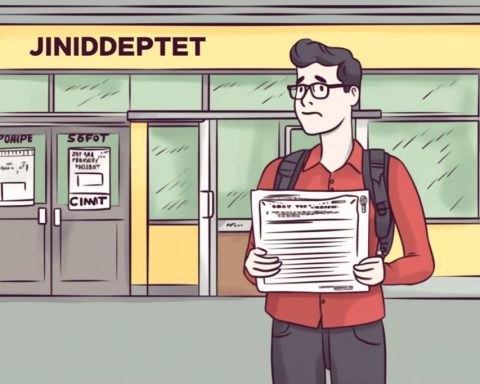The City has introduced a debt relief initiative for eligible citizens to absolve overdue debts and cultivate a culture of consistent payment. The initiative has two purposes: providing relief to eligible citizens and encouraging regular payments. Eligibility requirements and application guidelines are clear, and the City’s social support proves the effectiveness of such programs. It serves as a financial lifeline for those trapped in old debts, bearing witness to the City’s dedication to its residents, and fortifying the financial backbone of the city and its residents in the process.
Dual Purposes of the Initiative
The City’s relief initiative for legacy debts has dual purposes of providing relief to eligible citizens and cultivating a culture of consistent payment. This initiative absolves overdue debts for those who have established a payment plan for their current debt. It offers individuals a fresh start and inspires them to keep up with their payments, ultimately easing their financial burden. The eligibility requirements and application guidelines are clear, and the City’s extensive social support serves as evidence of the effectiveness of such programs.
In the fast-paced rhythm of city life, the financial pulse of a metropolitan area reverberates with the regularity of payments made by its citizens. The burden of lingering and current debts often leaves people gasping for financial air. In acknowledgement of this financial strain, the City has introduced a plan that not only provides relief for eligible citizens but also cultivates a culture of consistent payment. Councillor Siseko Mbandezi, the member of the mayoral committee for finance, is the driving force behind this initiative to absolve old debts.
Rooted firmly in the City’s values of support and service delivery, the old debt absolution initiative offers eligible citizens the chance to apply for the cancellation of overdue debts. This applies to debts that have been overdue for roughly three years, on the condition that a payment agreement is set up with the City to settle the remaining debt.
Dual Purposes of the Initiative
The initiative serves a dual function. On one hand, it assists those grappling with old debts by relieving the stress of mounting payments. On the other hand, it nurtures a climate that encourages consistent payment habits. Mbandezi stresses the significance of a robust payment culture, stating that it’s “crucial for the municipality’s health and the continued provision of services.” The elimination of old debt also functions as a reset button, offering individuals a fresh start and inspiring them to keep up with their current payments.
The City’s extensive level of social support, surpassing many other metros in South Africa, is evidence of the effectiveness of such programs. The debt absolution initiative, fundamentally, is a social pact between the City and its residents. The plan highlights the trust that the City has in its residents, acknowledging their hardships and offering support in return for their pledge to fulfill their current financial duties.
Eligibility and Application Guidelines
So, who qualifies for this program? The eligibility requirements are clear. Initially, individuals must establish a debt payment plan for their current debt. This agreement serves as a pledge to uphold regular payments in the future. Debts that have been overdue for more than three financial years will be considered for automatic cancellation. However, it’s crucial to remember that if customers fail to make their installment payments, the absolved debt will be reinstated.
To apply, certain documents are necessary. These include a copy of the applicant’s ID, proof of income, and the current account statement, which has to be paid upfront. An additional amount towards the overdue payments will be decided based on the individual’s financial capacity. If the individual is unemployed, an affidavit is required. In situations where the account has multiple holders, a consent letter from all individuals, along with the aforementioned documents, will be obligatory.
The application process can commence once the necessary documents are gathered. This can be done by visiting the City’s customer contact centres. Help is also available through the City Call Centre at 0860 103 089 or via email at Payment.Arrangements@capetown.gov.za
Ultimately, the City’s debt absolution plan serves as a financial lifeline for those trapped in the snare of old debts. It bears witness to the City’s dedication to its residents, enabling them to navigate a new course towards financial responsibility. As the City and its residents confront financial obstacles, the debt absolution initiative stands as a beacon of hope, highlighting the City’s steadfast commitment to nurturing a culture of payment and support. The initiative not only eases the financial burden but also fortifies the financial backbone of the city and its residents in the process.
1. What is the debt relief initiative introduced by the City?
The City has introduced a debt relief initiative for eligible citizens to absolve overdue debts and cultivate a culture of consistent payment.
2. What are the two purposes of the initiative?
The initiative serves two purposes: providing relief to eligible citizens and encouraging regular payments.
3. Who is eligible for the debt relief initiative?
Individuals must establish a debt payment plan for their current debt, and debts that have been overdue for more than three financial years will be considered for automatic cancellation.
4. What documents are needed to apply for the initiative?
The necessary documents include a copy of the applicant’s ID, proof of income, current account statement, and additional amount towards the overdue payments. In situations where the account has multiple holders, a consent letter from all individuals will be obligatory.
5. How can individuals apply for the initiative?
Individuals can apply by visiting the City’s customer contact centres or contacting the City Call Centre at 0860 103 089 or via email at Payment.Arrangements@capetown.gov.za.
6. Will the absolved debt be reinstated if installment payments are not made?
Yes, if customers fail to make their installment payments, the absolved debt will be reinstated.












